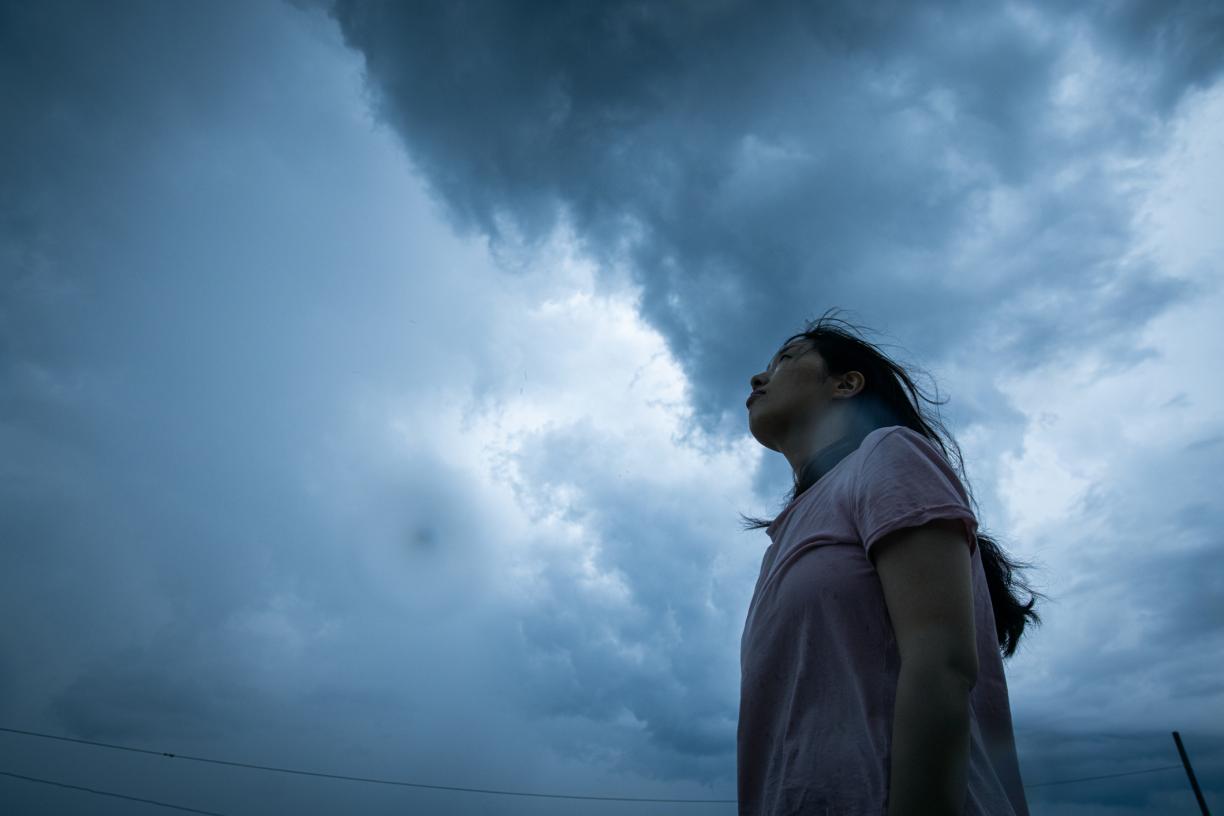Expert Q&A with environmental psychologist Dr. Lindsay McCunn

Dr. Lindsay McCunn is a VIU Psychology Professor and the Director of VIU’s Environmental Psychology Research Lab. In her role as chair of the environmental psychology section of the Canadian Psychological Association, and as the co-editor-in-chief of the Journal of Environmental Psychology, she is exposed to new research on how climate change is associated with anxiety, and how psychology relates to climate action and decision making.
What is climate anxiety?
Right now, increased attention is being given to negative feelings about climate-related events and the future of the Earth. These feelings are often referred to as “climate anxiety” or “eco-anxiety.” They tend to manifest as a profound sense of powerlessness and hopelessness about the current and future state of the natural environment, one’s own quality of life in relation to climate-related events, and about human health and well-being in general (Gifford & Gifford, 2016).
I recently helped produce a fact sheet about climate anxiety through the Canadian Psychological Association (McCunn et al., 2020). It references key points from Gifford and Gifford’s paper on the largely unacknowledged impact of climate change on mental health. For example, warnings in traditional and social media about severe climate-related events, such as hurricanes, droughts and wildfires can cause acute worry about personal safety, the safety of loved ones, and/or the safety of homes and other property. This is often called “ecological worrying” (Verplanken & Roy, 2003).
People who experience ecological worrying may be able to cope by adopting pro-environmental attitudes and behaving eco-consciously in ways that they are comfortable with. For example, one might take part in community-level activism, use public transit or ride a bike instead of driving, harvest rainwater or recycle. This form of worry can become less constructive (and eventually evolve into climate anxiety) if it is associated with strong feelings of helplessness, fear or frustration (Rabinowitz & Poljak, 2003).
What are the long-term effects of climate anxiety?
It is important to speak with a professional psychologist about climate anxiety and its effects on your daily life over time. When we are thinking about a specific threat to ourselves, our friends and family, our sense of community, our property and belongings, or our employment and economic certainty, outcomes may include depression, post-traumatic stress disorder, grief, despair, aggression, interpersonal difficulties, substance abuse and even suicide (McCunn et al., 2020). These outcomes have occurred for people dealing with the aftermath of a natural disaster, for example. Clinical psychologists have specialized expertise to help individuals process many of the negative effects of climate change on mental health. They are also trained to encourage and support effective positive behaviours.
Who is most likely to experience climate anxiety?
The fact sheet explains that anxiety related to the climate tends to significantly affect children, older adults, individuals with pre-existing mental health conditions, and people with fewer economic resources. Children experiencing climate anxiety may display low mood, nervousness, nightmares, social withdrawal, and difficulties being separated from caregivers. Older adults may be physically vulnerable to climate-related changes in their community and, as a result, can sometimes feel less able to use effective coping mechanisms or pro-environmental behaviours that would otherwise help them feel as though they were making a difference. Those with fewer economic resources may also be vulnerable to climate-related events as a result of living or employment conditions, a lack of access to resources, goods and services, or an inability to engage in pro-active eco-conscious behaviours in ways that they would prefer.
What can people do to help others dealing with climate anxiety?
From my experience as an environmental psychologist, it can be helpful to consider how much social observation matters. You may be a role model for those nearby who may be struggling to feel productive about climate change. Someone who is watching the sustainable choices that you make, or the ways in which you talk about the problem of climate change with optimism and goal-oriented words, may feel motivated to improve their attitudes or behaviours in the future.
Another way to help others who are dealing with climate anxiety is to take advantage of the extent to which nature benefits mental health. You might offer to spend time with others outdoors, keep a nature journal with a small group, or reflect on your attachments to places to buoy enthusiasm to protect the environment in general. Perhaps organizing a group of friends and neighbours to pick up litter in a nearby park or beach, or work on climate advocacy-based tasks together (in-person or online), could result in a stronger sense of community for those who are anxious about climate change. These kinds of activities may provide opportunities to voice concerns, receive feedback on ideas and fears, console others, and discuss actionable next steps to feel more in control.
For More Information:
Gifford, R. (2011). The dragons of inaction: Psychological barriers that limit climate
change mitigation and adaptation. American Psychologist, 66, 290–302.
Steg, L., & Vlek, C. (2008). Encouraging pro-environmental behaviour: An integrative
review and research agenda. Journal of Environmental Psychology, 29, 309-317.
References:
Gifford, E., & Gifford, R. (2016). The largely unacknowledged impact of climate change
on mental health. Bulletin of the Atomic Scientists, 72, 292-297. DOI: https://doi.org/10.1080/00963402.2016.1216505
McCunn, L. J., Bjornson, A., & Gifford, R. (2020). Psychology Works Fact Sheet:
Climate Anxiety. Canadian Psychological Association.
https://cpa.ca/docs/File/Publications/FactSheets/FS_Climate_Change_and_Anxiety-EN.pdf
Rabinowitz, P. M., & A. Poljak. (2003). Host-environment medicine: A primary care
model for the age of genomics. Journal of General Internal Medicine, 18, 222–227. DOI: https://link.springer.com/article/10.1046/j.1525-1497.2003.11101.x
Verplanken, B., & D. Roy. (2013). “My worries are rational, climate change is not”:
Habitual ecological worrying is an adaptive response. PLoS ONE, 8, e74708. DOI: https://doi.org/10.1371/journal.pone.0074708





